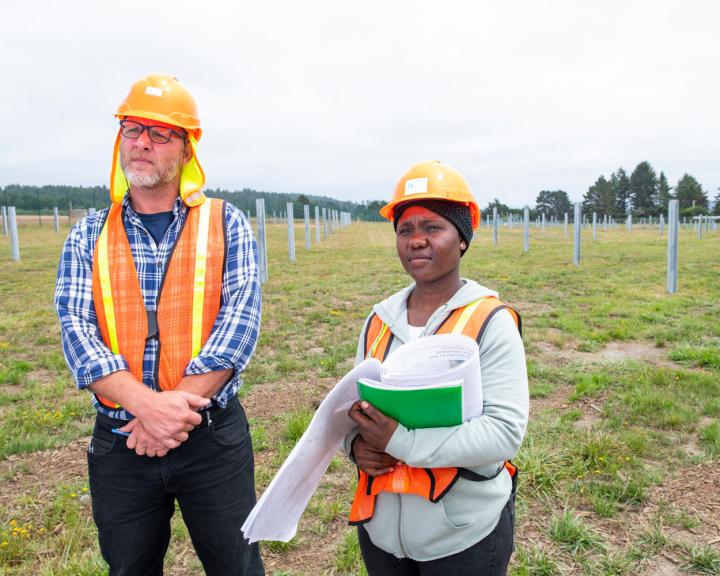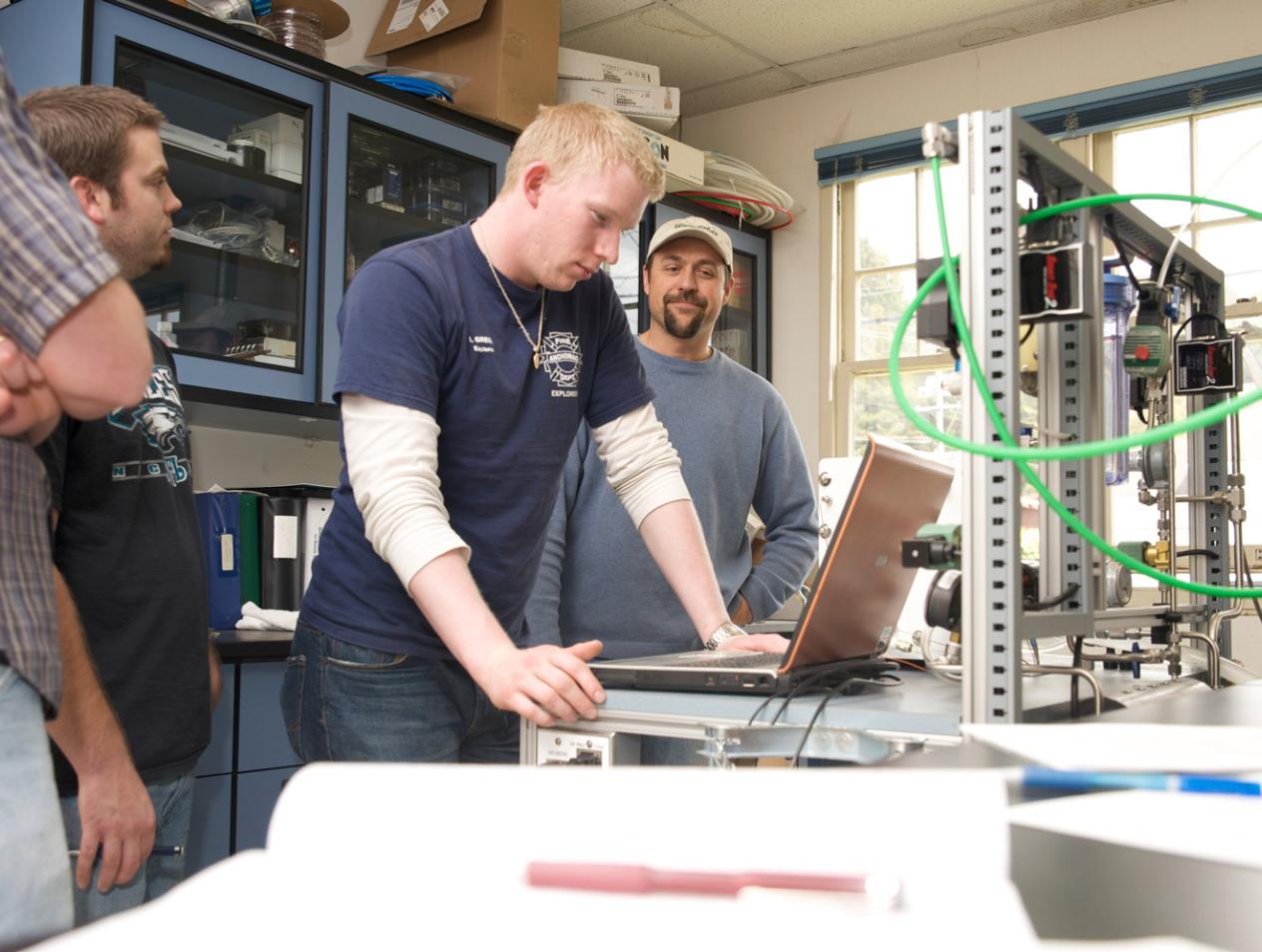Breadcrumb
Energy Systems Engineering, B.S.
Energy Systems Engineering will allow you to contribute to the important work of deploying clean and renewable energy systems that help combat climate change. This new field of engineering incorporates elements commonly included in Civil, Environmental, Mechanical, and Electrical engineering disciplines. The program will be focused on planning, designing, building, and operating a wide range of energy-related systems, from large-scale electric grids to solar powered devices that fit in your pocket.
Why this program
The Renewable Energy Student Union is a campus club that has done hands-on energy projects together since 2004. One project is operating a solar radiation monitoring station on the library roof that is part of a national network.
Students have been involved with the research related to wind energy, including internships with Native American tribes, the Redwood Coast Energy Authority, the Schatz Energy Research Center, and more.
Freshman are automatically enrolled in Baduwa’t to Bay, a Place-Based Learning Communities at Humboldt. This year-long program focuses on engineering design within the Baduwa’t (Mad River) Watershed and supports success.
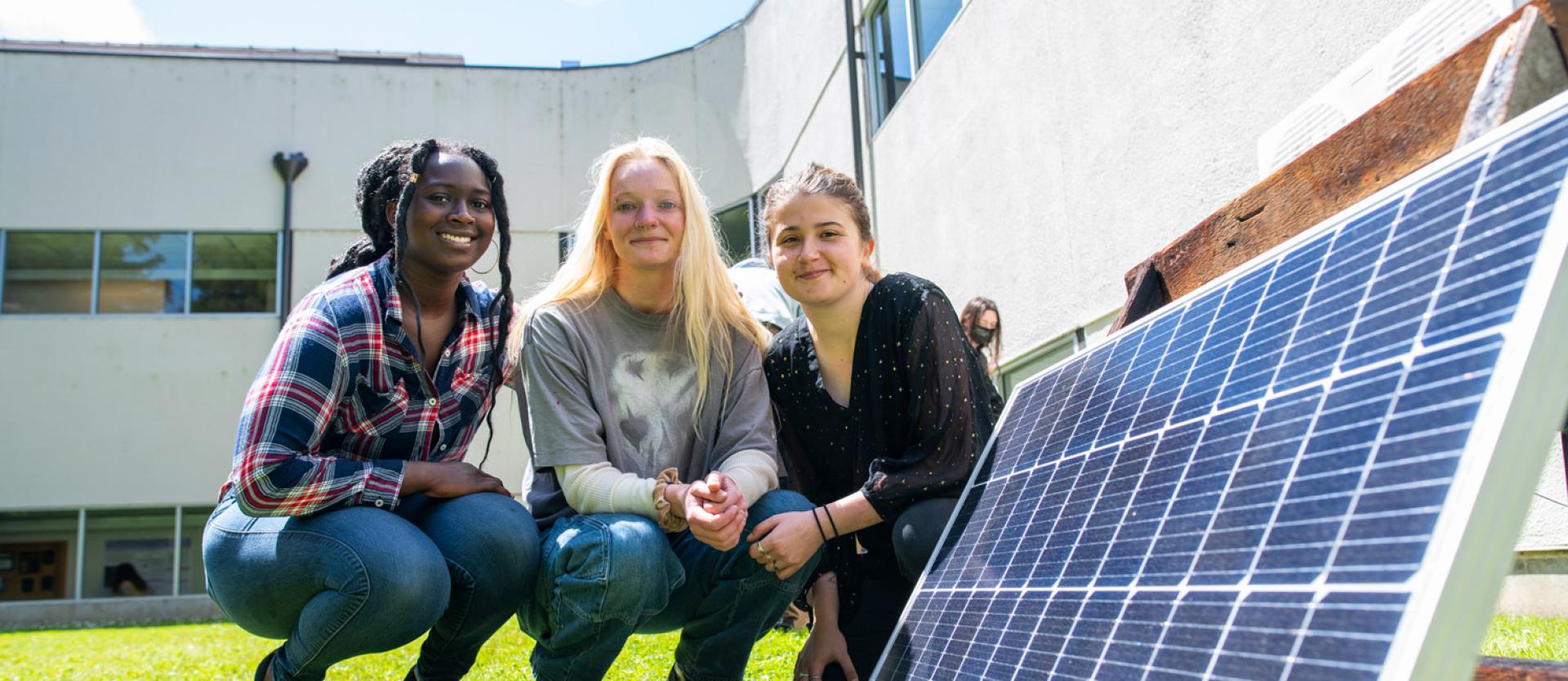
About the Program
In the first two years, all students in the School of Engineering who are interested in Environmental Resources, Energy Systems, or Mechanical Engineering will take a core set of foundational courses together. These fundamentals provide a well-rounded basis in natural sciences, humanities, math, computational science, data analysis, and engineering design.
At the upper division, students will choose a major pathway and complete specialty engineering courses which cover that area of expertise. These courses take a project-based and interdisciplinary approach.
Energy Systems students will go deep in important topics like thermodynamics, transport phenomena, building energy efficiency, renewable energy generation, electricity grids, and community energy planning. These building blocks, along with an understanding of how energy systems fit in society, the environment, and the economy, will prepare graduates for a range of energy-related careers.
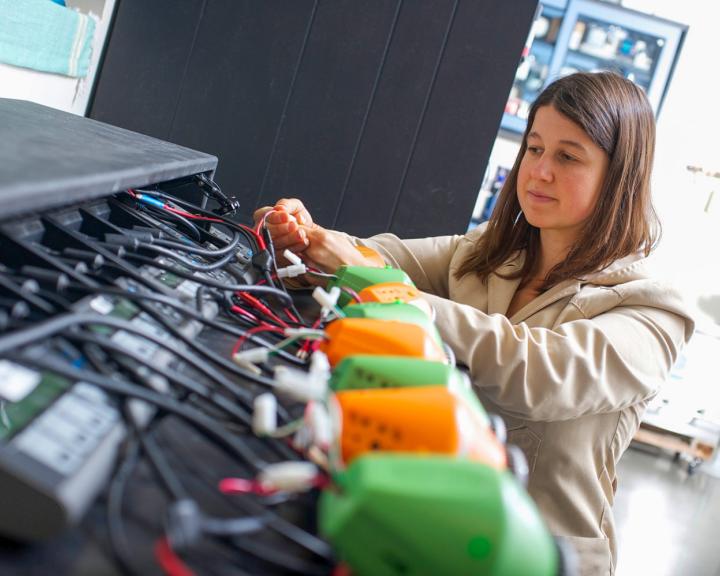
Did you know?
Our program is one of only a few Energy Systems Engineering degrees in the California State University system and is built from the ground up based on clean and renewable energy. Our graduates will be prepared to be leaders in this rapidly growing field.
Students will get hands-on learning opportunities in designing solar energy systems, making buildings more efficient, and programming microgrid control hardware that’s integrated into an advanced grid simulation system.
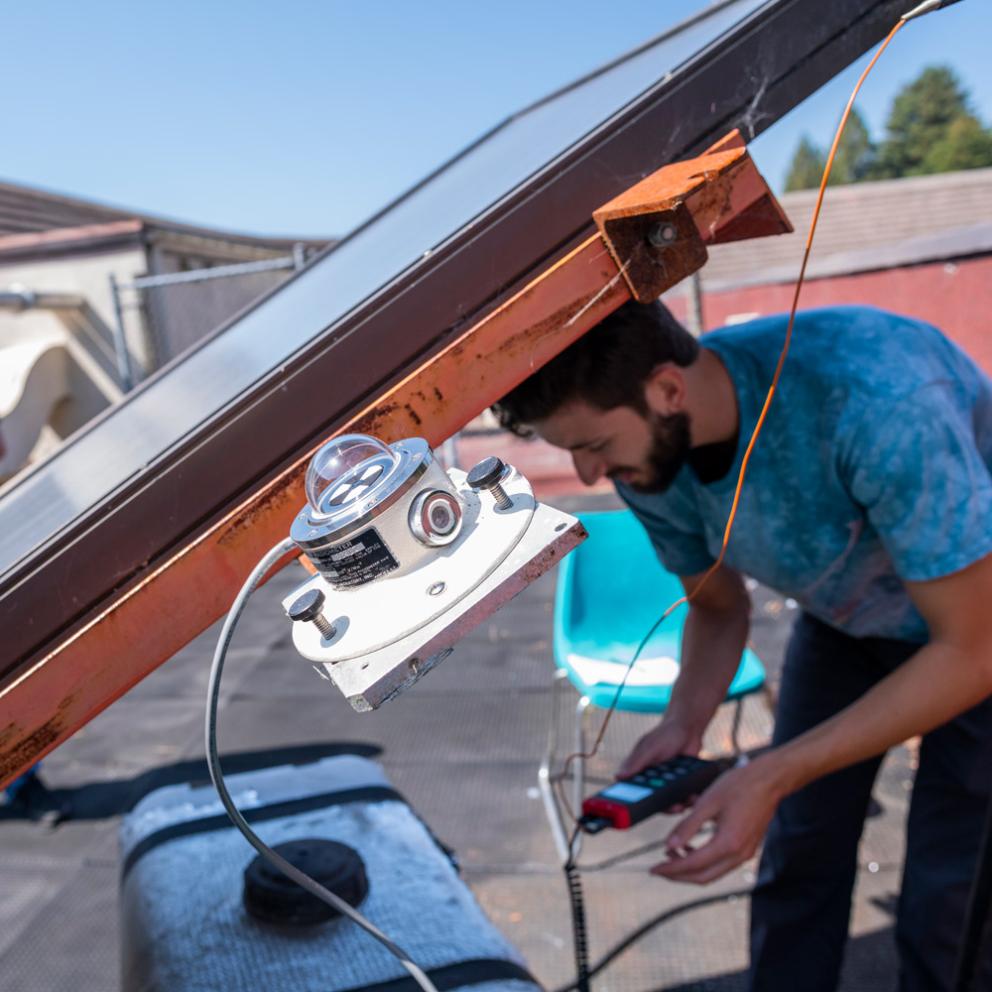
Careers
The Energy Systems degree prepares you for a career in developing, designing, operating, and analyzing clean energy systems.
- Energy Engineer
- Environmental Engineer
- Public Works Engineer
- Utility Engineer
- Energy Policy Advocate
- Building Energy Efficiency Analyst
- HVAC Engineer
- Wind Power Analyst/Engineer
- Solar Power Engineer
- Energy Storage Systems Engineer
- Energy Policy Analyst
- Energy Manager
